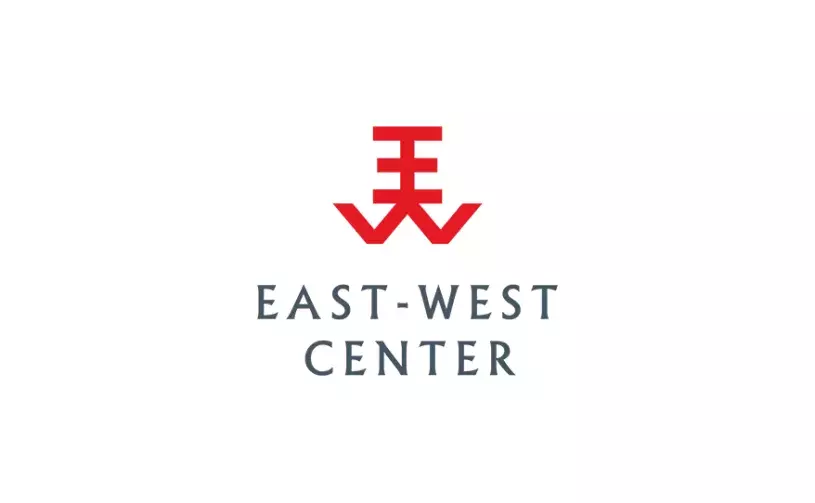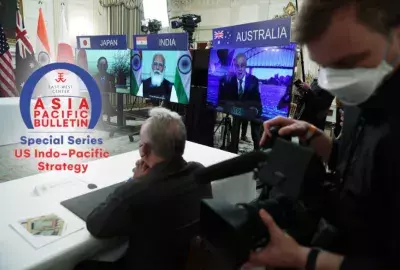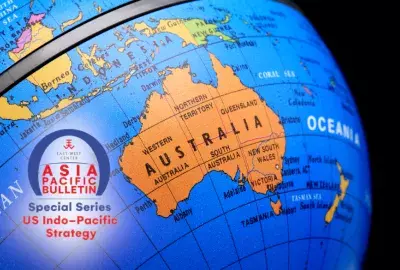Error message

|
Reiñer Subijano, Master’s student in Public Management at the Ateneo School of Government in the Philippines, explains that: “States draw on the international environment of legal resources in order to conduct diplomacy and in doing so they remake them.” |
In the last week of July, 2020, an “online war” arose between Philippine Secretary of Foreign Affairs Teodoro Locsin, Jr. and Malaysian Foreign Affairs Minister Hishammuddin Hussein over a simple tweet from the U.S. Embassy in Manila, regarding a donation from the U.S. Agency for International Development (USAID) to returning Filipino repatriates “from Sabah, Malaysia.” The tweet sparked an enraged response from Secretary Locsin, who replied that “Sabah is not in Malaysia if you want to have anything to do with the Philippines.” Two days later, Minister Hussein tweeted that “Sabah is, and will always be, part of Malaysia”, qualifying Secretary Locsin’s tweet as an “irresponsible statement that affects bilateral ties.” While the two parties have summoned each other’s representatives for an explanation on the matter, the case of Sabah raises fundamental questions about the direction of the country’s foreign policies.

The dispute over Sabah is particularly relevant because one of the Duterte administration’s foreign policy priorities is defending the Philippines’s sovereignty, and its environment and natural resources, which can only be carried out to the extent that it effectively asserts its rights over claimed maritime territory. Relative thereto, the Baselines of the Territorial Sea of the Philippines under Republic Act (R.A.) No. 5446 (amending R.A. No. 3046) includes "the territory of Sabah, situated in North Borneo, over which the Republic of the Philippines has acquired dominion and sovereignty." While this was further amended by RA No. 9522 in 2009, the Supreme Court ruled that the Baselines Law has not relinquished the Philippines’s claim to Sabah — a claim that Malaysia rejects.
Recently, in his recent State of the Nation Address on July 24, 2020, President Duterte admitted that he is ‘inutile’ when it comes to the South China Sea maritime dispute considering the country cannot afford to go to war with China which has an expansive claim in the territory. His statement likely meant one of two things: either he intends to leave the matter to the Secretary of Foreign Affairs, or he was frankly expressing his inability to properly address the issue.
On the one hand, it appears that the President is more concerned with results than with Secretary Locsin’s style of diplomacy. And to give credit where it is due, the top diplomat has effectively ensured the Department of Foreign Affairs’ (DFA) prompt repatriation of overseas Filipino workers affected by the COVID-19 pandemic, as well as the provision of swift assistance to Filipinos affected by the tragic explosion in Beirut.
On the other hand, Secretary Locsin’s actions and official statements on Twitter seem to defy the President’s marching order to “just cool off” and pursue diplomatic endeavors. In response to Minister Hussein’s move to summon the PH Ambassador, Secretary Locsin insisted that the Philippines’ claim over Sabah is historically factual and that Malaysia tried to derail the Arbitral Award. As a result, he may be pursuing actions that are “independent” of the country’s independent foreign policy after all.
In his defense, Secretary Locsin described his style of diplomacy as “forthright” in an online media interview, where he stated that “in diplomacy, you never lie to each other.” In his own words, "the best diplomats never lie, never confuse. Real diplomacy proceeds by clarity. Only the amateurs and the untalented make it seem complicated.”
As a former journalist and newspaper and political magazine publisher, Secretary Locsin may have brought his fearless attitude and unfiltered approach to the role, but this same conduct can complicate his diplomatic duties.
This only goes to show that the most important product of diplomacy is not persuasion, consensus, or agreement – states draw on the international environment of legal resources in order to conduct diplomacy and in doing so they remake them as some scholars would assert. Therefore, the productive effect of diplomacy is not dependent on a consensus around the meaning of the new claims, only on the fact that the rules were deployed and interpreted to fit the case.
To date, the status quo remains unchanged. On its end, the Philippines will continue to assert its claim to Sabah, and following its victorious arbitration case with the Hague, it will never abandon its claim for the South China Sea. Similarly, Malaysia reiterated its claim to the South China Sea in its note verbale to the United Nations’ Commission on the Limits of the Continental Shelf (CLCS). At the very least, both countries seem to agree on one thing: the rejection of China’s claims to historic rights, or other sovereign rights or jurisdiction, with respect to the maritime areas of the South China Sea encompassed by the nine-dash line. After all, this would indicate that the Philippines and Malaysia can agree to disagree on the matter — and that is the reality of diplomacy.
|
Reiñer Subijano, Master’s student in Public Management at the Ateneo School of Government in the Philippines, explains that: “States draw on the international environment of legal resources in order to conduct diplomacy and in doing so they remake them.” |
In the last week of July, 2020, an “online war” arose between Philippine Secretary of Foreign Affairs Teodoro Locsin, Jr. and Malaysian Foreign Affairs Minister Hishammuddin Hussein over a simple tweet from the U.S. Embassy in Manila, regarding a donation from the U.S. Agency for International Development (USAID) to returning Filipino repatriates “from Sabah, Malaysia.” The tweet sparked an enraged response from Secretary Locsin, who replied that “Sabah is not in Malaysia if you want to have anything to do with the Philippines.” Two days later, Minister Hussein tweeted that “Sabah is, and will always be, part of Malaysia”, qualifying Secretary Locsin’s tweet as an “irresponsible statement that affects bilateral ties.” While the two parties have summoned each other’s representatives for an explanation on the matter, the case of Sabah raises fundamental questions about the direction of the country’s foreign policies.

The dispute over Sabah is particularly relevant because one of the Duterte administration’s foreign policy priorities is defending the Philippines’s sovereignty, and its environment and natural resources, which can only be carried out to the extent that it effectively asserts its rights over claimed maritime territory. Relative thereto, the Baselines of the Territorial Sea of the Philippines under Republic Act (R.A.) No. 5446 (amending R.A. No. 3046) includes "the territory of Sabah, situated in North Borneo, over which the Republic of the Philippines has acquired dominion and sovereignty." While this was further amended by RA No. 9522 in 2009, the Supreme Court ruled that the Baselines Law has not relinquished the Philippines’s claim to Sabah — a claim that Malaysia rejects.
Recently, in his recent State of the Nation Address on July 24, 2020, President Duterte admitted that he is ‘inutile’ when it comes to the South China Sea maritime dispute considering the country cannot afford to go to war with China which has an expansive claim in the territory. His statement likely meant one of two things: either he intends to leave the matter to the Secretary of Foreign Affairs, or he was frankly expressing his inability to properly address the issue.
On the one hand, it appears that the President is more concerned with results than with Secretary Locsin’s style of diplomacy. And to give credit where it is due, the top diplomat has effectively ensured the Department of Foreign Affairs’ (DFA) prompt repatriation of overseas Filipino workers affected by the COVID-19 pandemic, as well as the provision of swift assistance to Filipinos affected by the tragic explosion in Beirut.
On the other hand, Secretary Locsin’s actions and official statements on Twitter seem to defy the President’s marching order to “just cool off” and pursue diplomatic endeavors. In response to Minister Hussein’s move to summon the PH Ambassador, Secretary Locsin insisted that the Philippines’ claim over Sabah is historically factual and that Malaysia tried to derail the Arbitral Award. As a result, he may be pursuing actions that are “independent” of the country’s independent foreign policy after all.
In his defense, Secretary Locsin described his style of diplomacy as “forthright” in an online media interview, where he stated that “in diplomacy, you never lie to each other.” In his own words, "the best diplomats never lie, never confuse. Real diplomacy proceeds by clarity. Only the amateurs and the untalented make it seem complicated.”
As a former journalist and newspaper and political magazine publisher, Secretary Locsin may have brought his fearless attitude and unfiltered approach to the role, but this same conduct can complicate his diplomatic duties.
This only goes to show that the most important product of diplomacy is not persuasion, consensus, or agreement – states draw on the international environment of legal resources in order to conduct diplomacy and in doing so they remake them as some scholars would assert. Therefore, the productive effect of diplomacy is not dependent on a consensus around the meaning of the new claims, only on the fact that the rules were deployed and interpreted to fit the case.
To date, the status quo remains unchanged. On its end, the Philippines will continue to assert its claim to Sabah, and following its victorious arbitration case with the Hague, it will never abandon its claim for the South China Sea. Similarly, Malaysia reiterated its claim to the South China Sea in its note verbale to the United Nations’ Commission on the Limits of the Continental Shelf (CLCS). At the very least, both countries seem to agree on one thing: the rejection of China’s claims to historic rights, or other sovereign rights or jurisdiction, with respect to the maritime areas of the South China Sea encompassed by the nine-dash line. After all, this would indicate that the Philippines and Malaysia can agree to disagree on the matter — and that is the reality of diplomacy.







